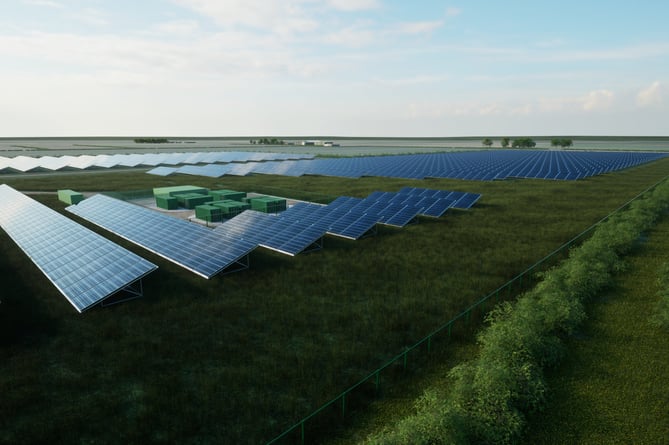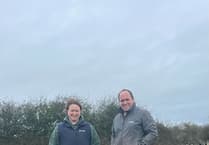A Cornwall councillor said he fears there will be “no farmers left” in the county if productive agricultural land is used for solar farms. Brian Clemens’ comments came during a debate calling for Cornwall Council to establish the right balance between use of land for agriculture and solar farms, particularly the rise in controversial industrial-sized solar parks.
A motion was tabled by Conservative councillor Alan Jewell, who represents Falmouth Boslowick and is also a farmer, for the local authority’s chief planning officer to commission research to explore the economic role of Grade 3 land to ensure that planning decisions take into account the right balance between use of land for food production and solar farms. It follows a number of contentious planning applications for industrial solar farms in Cornwall.
Cllr Lionel Pascoe (Conservative, Gwinear-Gwithian & Hayle East) seconded the motion.
Jennifer Cruse (Conservative, Lanivet, Blisland & Bodmin St Lawrence) said she supported the motion: “Cornwall is a beautiful place and we haven’t really discussed the visual impact which I consider is quite detrimental. We need solar power but we have to be careful where we put it.”
Not all councillors were in favour of the motion. Cllr Dominic Fairman said he respected the councillors who had brought the motion but “I do wonder what planet they’re on. We have just broken global temperature records for the tenth straight month in a row. This is just a foretaste of the legacy we’ve baked in for our children and grandchildren. The greatest threat to food security and farming is, of course, climate change.”
Farmer and Liberal Democrat councillor Adrian Parsons said: “Of course, food security is important but I, for one, know it also needs to be profitable. My best arable land for the last seven years hasn’t produced food for human consumption. Instead, the government pays me to grow crops, not to harvest, but to rot in the fields for the birds and wildlife. It’s actually my most profitable crop and I get great satisfaction seeing the wealth of wildlife thriving in this habitat.
“Interestingly, saying solar panels take land out of agricultural production isn’t the case. I have an acre of solar panels and the sheep love them – in the winter they give shelter and in the summer they give shade, and this is the most profitable acre on the farm. It provides not just me with electricity but most of the settlement where I live. Energy security should not be dismissed.”
Following a number of other speakers, the contentious debate was cut short due to the length of the meeting, with many more councillors unable to comment. Members voted in favour to support the motion. It will cost the council around £30,000 to commission the proposed report.



